Science March and Leftist values
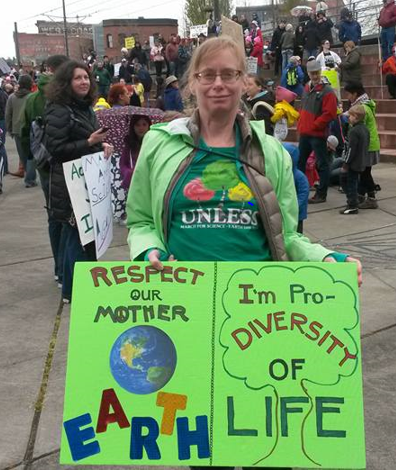 I attended the Science March on Earth Day on April 22nd, 2017 in Tacoma, Washington because of my concern over the cuts the Trump administration has proposed to vital government agencies such as the EPA, NIH, NASA, NOAA, NSF, National Parks, and more. Even more concerning is the way in which it has tried to control the availability of scientific reports, especially in regards to climate change, and the way it has tried to silence and bully government scientists so that they have had to express themselves anonymously on alternative websites and social media pages.
I attended the Science March on Earth Day on April 22nd, 2017 in Tacoma, Washington because of my concern over the cuts the Trump administration has proposed to vital government agencies such as the EPA, NIH, NASA, NOAA, NSF, National Parks, and more. Even more concerning is the way in which it has tried to control the availability of scientific reports, especially in regards to climate change, and the way it has tried to silence and bully government scientists so that they have had to express themselves anonymously on alternative websites and social media pages.
In general, the Left appears more supportive of science than the Right, but there has been some criticism of the position of many liberals on certain scientific topics such as vaccines, GMO’s and nuclear energy:
http://kuow.org/post/science-doesnt-care-about-your-ideology-includes-you-seattle-liberals
Even Bill Nye has changed his view on some of these topics, which he discusses with panels of experts on his new TV show on Netflix:
As an environmentalist and a hobby genealogist/family historian, I felt the need to respond to concerns about these specific topics.
Vaccines: I totally agree with the criticism of people who choose not to vaccinate their children. Vaccines save lives! Throughout history, many children did not survive to adulthood or were left maimed and disfigured because of these devastating diseases. It is unfortunate that many diseases that were nearly eradicated are making a comeback because of people choosing not to vaccinate. This puts not only their family at risk, but others in society, including babies who are too young to vaccinate and those with suppressed immune systems.
There was an infamous scientific report published in The Lancet that associated vaccines with autism. That report was debunked and declared fraudulent…Anyone can make a claim, but scientific studies must be able to have its data evaluated and reviewed. Studies must be able to be replicated with consistent results.
There also has been some concern over carrier chemicals used in conjunction in the administration of vaccines. I am confident that medical researchers will continue to develop new and better formulations:
http://www.publichealth.org/public-awareness/understanding-vaccines/vaccine-myths-debunked/
I have often said that I believe the reason that the rates of autism and other diseases are on the increase are more likely due to chemicals in our food and in our environment. (Our addiction to computer games and many hours of screen time are likely affecting the brains of our children as well.) More scientific study is needed—-not less!
This leads me to the next topic:
GMOs, Genetically Modified Organisms: I believe there are a lot of environmental and ethical concerns that need to be addressed in regards to GMOs.
First of all, proponents argue that GMO’s are just another tool used to create varieties of plants and animals that will be useful in agriculture and our quest for food security. They claim it is not much different than traditional plant breeding efforts.
Ethics: It is true that we have adapted many species of plants and animals over several millennia for our purposes. But inserting DNA from unrelated species into other species seems a bit more “unnatural.” I think that this topic should be debated by ethicists. Just because something can be done, doesn’t mean it should be done!
I have a problem with the patenting of living organisms. Especially in regards to how Monsanto has defended its patent rights in the past. Farmers should be able to save their seeds to replant the following year, yet teams of Monsanto’s patent lawyers have gone after seed saving companies and farmers that have tried to save their seed for replanting. Even neighboring farms, who did not plant the patented crops, who had their crops “contaminated” with Monsanto’s GMO’s were targets sued for patent infringement. Companies like Monsanto REQUIRE that new seed be bought every year. Meanwhile, the availability of seed is in the hands of very few companies so that they have a virtual monopoly.
http://foodsecurity.uchicago.edu/research/preserving-seed-diversity/
http://www.seedsavers.org/site/pdf/HeritageFarmCompanion_BigSix.pdf
Safety: I am not as concerned about the safety of GMO’s themselves in our food as I am about associated risks. The whole purpose for “Round-up Ready” crops, is so that farmers could use Round-up to kill weeds, but not their crops. So, we are at risk of having Glyphosate residue on our produce and in our environment. Glyphosate HAS been linked to autism and may also be a risk factor in other diseases—More research, needs to be done!
https://vaccineimpact.com/2017/study-reducing-herbicide-glyphosate-in-diet-reduces-autism-symptoms/
Environment: If we are using GMO crops so we can spray more chemicals, that is bad for the environment. But it may be good if we can reduce the spraying of chemicals. There is a debate raging on the safety of BT crops. People can do their own research and decide:
I am also concerned about the escape of GMOs into natural environments. This is especially a concern when it comes to fish and tree species. It is hard to predict how natural populations would be able to compete against GMO’s. I always think of the chaos theorist in Jurassic Park who says “No, I’m, I’m simply saying that life, uh… finds a way.”… and then the dinosaurs escaped the island on which they were confined…
http://knowgenetics.org/ecological-concerns-of-gmos/
Photo from Science March Facebook page
—“Yeah, but your scientists were so preoccupied with whether or not they could that they didn’t stop to think if they should.” —Another Jurassic Park quote.
Nuclear Energy: Many scientists contend that nuclear energy is necessary source of energy if we are to satisfy the demand for energy while reducing reliance on carbon polluting fossil fuels. The two main reasons that I oppose nuclear energy is the potential for disaster and the enormous cost to build and maintain nuclear energy facilities.
Danger: The potential for disaster is too great. We all saw the devastating effects in Japan after the earthquake and tsunami in 2011. As well as historical failures at Chernobyl and Three Mile Island.
How long does nuclear waste last? –“Radioactive isotopes eventually decay, or disintegrate, to harmless materials. Some isotopes decay in hours or even minutes, but others decay very slowly. Strontium-90 and cesium-137 have half-lives of about 30 years (half the radioactivity will decay in 30 years). Plutonium-239 has a half-life of 24,000 years.” –from the United States Nuclear Regulatory Commission. That is a long time to keep dangerous materials contained! I can’t help but picture people of the future unknowingly stumbling across a forgotten nuclear waste storage facility!
Here in Washington State, we are still struggling to contain nuclear waste at Hanford that was left over from WWII.
Expense: Nuclear energy is expensive. Older facilities need maintenance and building new ones cost a lot. Many projects have been abandoned due to lack of funds and/or lack of support. Meanwhile, the cost of clean, renewable energy sources has come down in price. Renewables: wind, solar, geothermal, tidal, etc. are starting to be a major part in our energy mix.
What poses the greatest danger to our future? What should we really be scared of?
We need to let scientists study and evaluate data so that we can come to rational conclusions regarding these questions. How serious is the threat of Climate Change, terrorism, and gun violence? Let’s face it we are human; we often let our emotions get the better of us. But we need to take a step back and look at what is really true, like what are the current leading causes of death in the U.S and what do we need to study to be able to find solutions to these problems?
“Let’s be clear. The planet is not in jeopardy. We are in jeopardy. We haven’t got the power to destroy the planet – or to save it. But we might have the power to save ourselves.” ― Michael Crichton, Jurassic Park

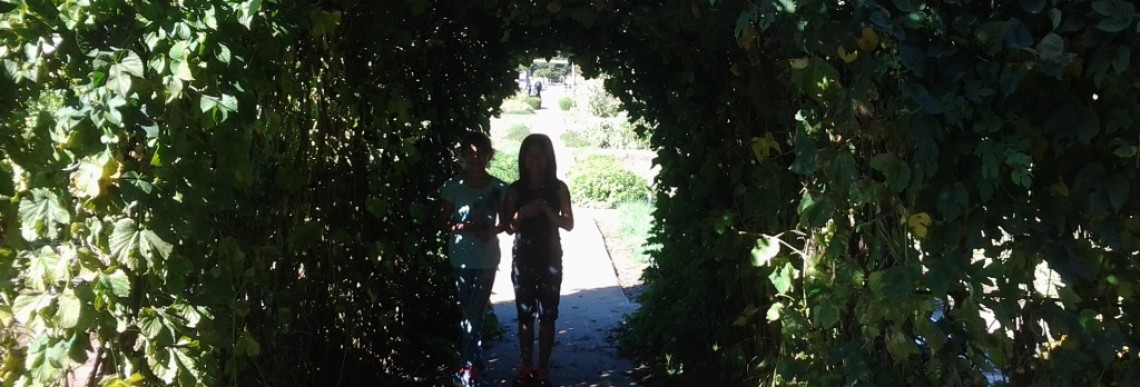
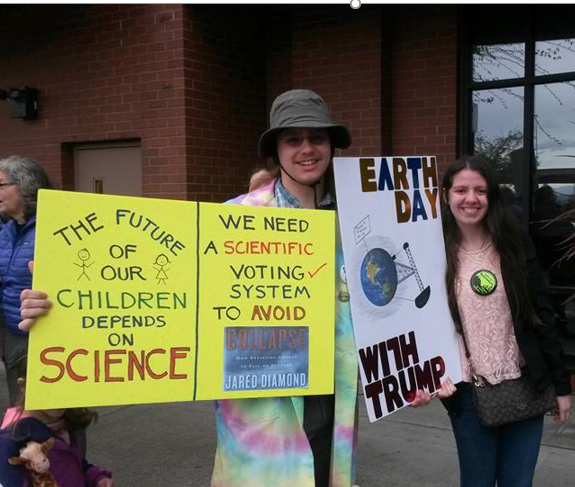
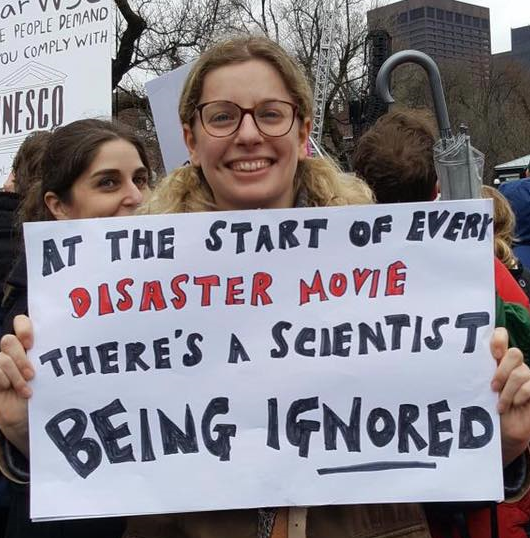
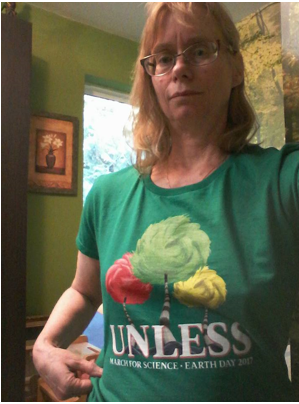
Immediately, I favorited your website. My wife and I recently bought our first home in Spokane. They have a program that reimburses citizens for removing their front lawn and replacing it with drought resistant plants and trees. We also have the option of drip watering raised garden beds. The incentive is 50 cents a square foot up to a few hundred dollars (which gets credited on our water bill). We are looking for native plants that attract monarchs, bumblebees, dragonflies, and birds. All that being said, we’ll be visiting your page a lot! Also, our Leftist values seem to align quite well.
I agree with just about everything that you have posted!